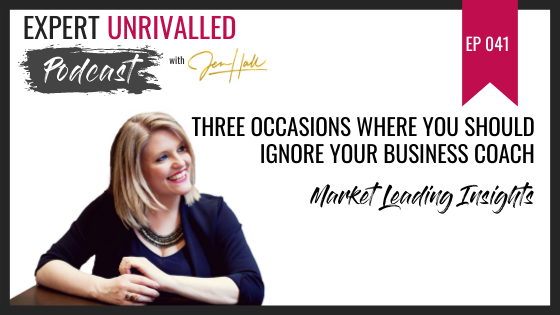You invest in a Business Coach to help your business and in order for that relationship to work and for your business to grow there has to be a level of trust. However, there are a few exceptions where your business coach can actually hinder your business growth and rain on your parade where it’s actually not warranted.
In this controversial episode I talk about three of those occasions AND the caveats to these instances, PLUS I reveal…
- My favourite kind of market research that works 100% of the time.
- The pricing myth and why your prices will never remain stationary
- How you could actually be kidding yourself about the success of your business ideas and how to turn that around.
Useful Links:-
Book onto my Evolve & Elevate Strategy Session – http://www.jen-hall.com/strategysession
Book a Call with Jen – bit.ly/claritycallpodcast
Download my free Ultimate Guide to Becoming a Market Leader – http://bit.ly/MARKETLEADERGUIDE
Send your emails to jen@jen-hall.com
[spp-transcript]

